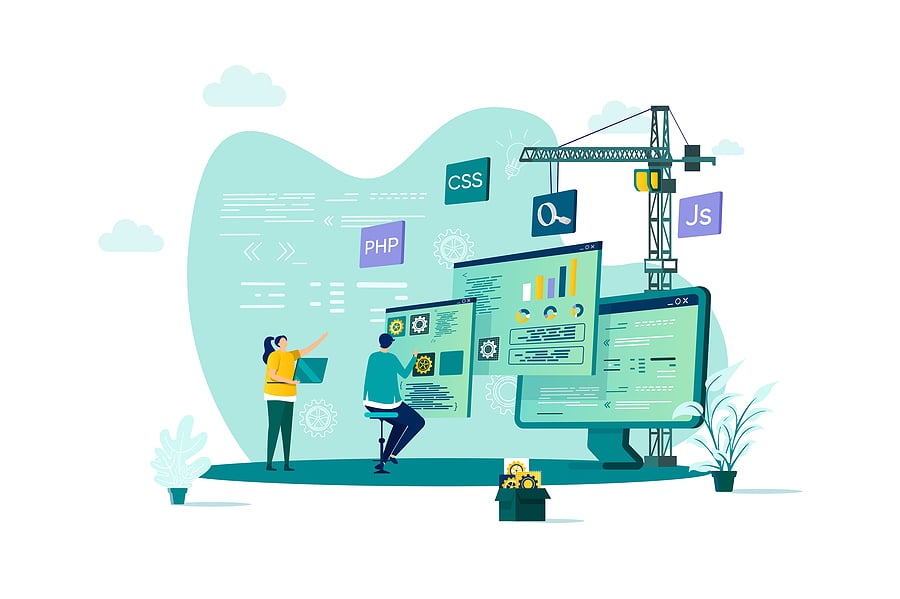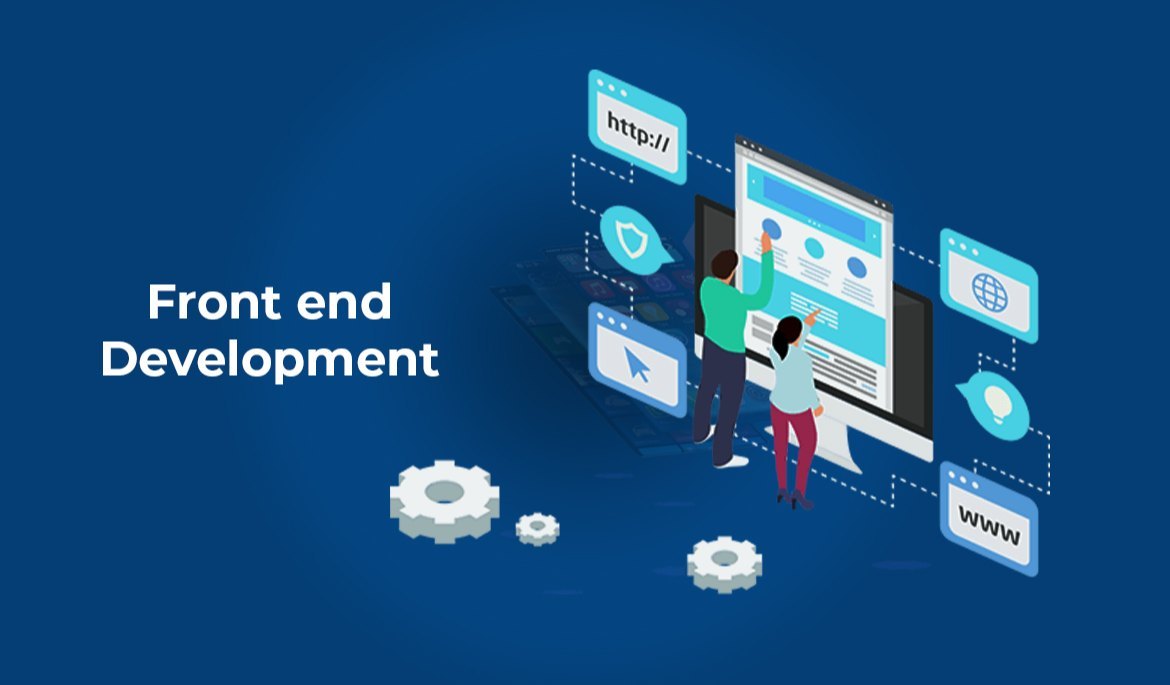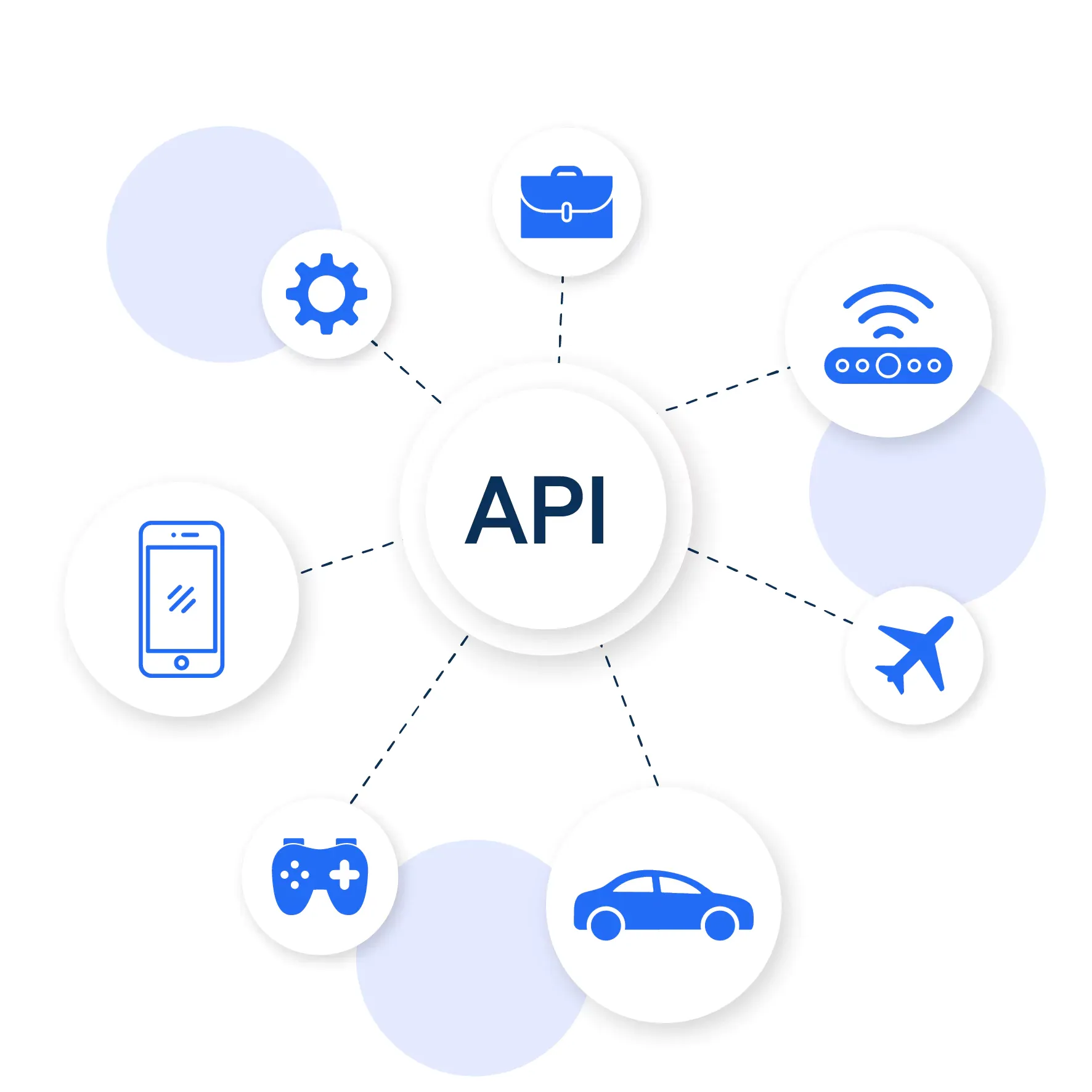The Future & Scope of Full-Stack Developers in India
The role of a Full-Stack Developer is one of the most sought-after careers in the software industry today. Full-stack developers are proficient in both front-end technologies (which handle user interaction) and back-end systems (which manage databases, servers, and application logic). This unique combination of skills allows them to build complete applications from start to finish, making them highly versatile and valuable to businesses. In India, with the rapid growth of digital transformation, e-commerce platforms, mobile apps, and startups, the demand for full-stack developers is rising exponentially. As technology evolves, developers who can integrate various frameworks and tools efficiently will continue to play a crucial role in shaping the future of software development.
A Full-Stack Developer is a professional skilled in both front-end (user interface) and back-end (server-side) development. They can work on all stages of development, from databases and servers to client-side technologies and application deployment. Technologies like HTML, CSS, JavaScript, Node.js, React.js, Angular, Python, and Databases are commonly used by full-stack developers.
- Full Stack Development Course In Chennai
- Front End Web Development Course In Chennai
- React Course In Chennai
- BEST 10 HTML/CSS BOOKS
- Top Features of HTML
- Basic React Native Interview Questions & Answers
- Intermediate React Native Interview Questions & Answers
- Front End Developer Skills
- MERN Interview Questions and Answers
- Internships In Chennai
- Internship For CSE Students In Chennai
- Internship For IT Students In Chennai
- Top 50 Mini Project Ideas For College Students
The Future Scope of Full-Stack Developers in India: Trends and Opportunities
India’s technology landscape is evolving rapidly, making full-stack development a highly promising field. Companies are increasingly seeking developers with comprehensive knowledge of both front-end and back-end technologies. Here are the key trends and opportunities shaping the future for full-stack developers in India:

1. Increasing Demand for Versatile Developers
Businesses, particularly startups and small enterprises, prefer hiring full-stack developers who can manage multiple roles. This demand will continue to grow, creating numerous job openings across industries.
2. Growth of Digital Transformation
The rise of digital initiatives in India, supported by government policies like Digital India, has led to a surge in demand for scalable, user-friendly platforms. Full-stack developers play a crucial role in building these solutions.
3. Expansion of E-Commerce and FinTech
Sectors like e-commerce, fintech, and health-tech are booming, requiring sophisticated web and mobile applications. Full-stack developers can handle both the user interface and the backend systems, making them integral to these industries.
4. Cloud-Based Development
The shift towards cloud computing and SaaS solutions creates new opportunities for developers with knowledge of cloud platforms and full-stack frameworks like MERN, MEAN, and Django-React.
5. Rise of Remote Work and Freelancing
Global opportunities for Indian developers have expanded with the rise of remote work. Companies worldwide look for cost-effective, highly skilled developers, positioning Indian full-stack professionals for freelance and international roles.
In conclusion, full-stack development offers a bright future with dynamic career paths, competitive salaries, and the ability to work on cutting-edge technologies. Constant upskilling in trending tools and frameworks will ensure continued success in this field.
Understanding the Salary Range of Full-Stack Developers in India

The salary of a Full-Stack Developer in India varies based on factors such as experience, skills, company size, location, and industry. Full-stack development is a lucrative career path due to the versatility and demand for professionals who can handle both front-end and back-end development.
Entry-Level Salary (0–2 years)
- Average: ₹3.5 to ₹6 LPA
- Skills: Basic knowledge of HTML, CSS, JavaScript, Node.js, or React.js.
- Common employers: Startups and smaller firms looking for cost-effective developers.
Mid-Level Salary (2–5 years)
- Average: ₹6 to ₹12 LPA
- Skills: Experience with MVC frameworks, databases, APIs, and cloud platforms.
- Companies: MNCs, product-based tech companies, and larger enterprises.
Experienced/ Senior-Level (5+ years)
- Average: ₹12 to ₹25 LPA or more
- Skills: Expertise in scalable systems, microservices, cloud architecture, and leadership roles.
- Roles: Technical Architect, Project Manager, or Lead Developer.
The salary of a Full-Stack Developer in India can vary significantly depending on the skills and expertise they possess in various areas of development. Here’s a breakdown of how expertise in different areas influences salary ranges
1. Front-End Development

Skills Required: HTML, CSS, JavaScript, React, Angular, Vue.js
Salary Range: ₹4,00,000 – ₹12,00,000 per year
Explanation: Strong front-end skills are essential for creating user interfaces, and developers with expertise in popular frameworks like React or Angular tend to earn higher salaries.
2. Back-End Development
Skills Required: Node.js, Python, Java, PHP, Ruby, .NET
Salary Range: ₹5,00,000 – ₹14,00,000 per year
Explanation: Back-end developers who manage server-side logic and databases generally earn more, especially when they specialize in languages like Java or Python, which are widely used for scalable applications.
3. Database Management
Skills Required: SQL, NoSQL (MongoDB, Firebase), MySQL, PostgreSQL
Salary Range: ₹4,50,000 – ₹12,00,000 per year
Explanation: Developers who specialize in managing databases and ensuring efficient data flow are highly valued. Strong knowledge in optimizing database queries and handling large datasets can command a higher salary.
4. API Integration

Skills Required: RESTful APIs, GraphQL, Web Services
Salary Range: ₹5,00,000 – ₹13,00,000 per year
Explanation: API integration skills are crucial for connecting various services and applications. Expertise in designing and consuming APIs can boost a developer’s salary range.
5. Version Control
Skills Required: Git, GitHub, GitLab, Bitbucket
Salary Range: ₹4,00,000 – ₹10,00,000 per year
Explanation: While version control tools like Git are essential for collaboration, developers with advanced skills in version control systems are valued in team environments.
6. Testing and Debugging
Skills Required: Unit Testing, Selenium, Mocha, Jest
Salary Range: ₹5,00,000 – ₹12,00,000 per year
Explanation: Developers proficient in testing and debugging tools are crucial to ensuring the quality of applications. Automated testing skills further enhance earning potential.
7. Security Implementation
Skills Required: Encryption, Authentication (OAuth, JWT), Security Best Practices
Salary Range: ₹6,00,000 – ₹15,00,000 per year
Explanation: Developers with expertise in implementing security measures, such as data protection and preventing cyber threats, are highly sought after and often receive premium salaries.
8. Collaboration with Designers
Skills Required: UI/UX understanding, Wireframes, Adobe XD, Figma
Salary Range: ₹4,50,000 – ₹11,00,000 per year
Explanation: Full-stack developers who can collaborate effectively with designers to bring wireframes to life often earn more, especially when they have a strong sense of design and usability.
9. Continuous Learning
Skills Required: Knowledge of new frameworks, DevOps tools, Cloud Computing
Salary Range: ₹5,00,000 – ₹14,00,000 per year
Explanation: Continuous learning is key to staying competitive in the field. Developers who keep up with the latest technologies (like cloud platforms and microservices) tend to earn better salaries.
10. Project Management
Skills Required: Agile methodologies, Scrum, Jira
Salary Range: ₹8,00,000 – ₹20,00,000 per year
Explanation: Full-stack developers with project management skills or leadership experience in managing teams and workflows can earn higher salaries due to their ability to drive projects to completion.
Top 5 Skills for Future Full-Stack Developers
As the world of software development advances, full-stack developers must continuously enhance their skill sets to stay ahead. Here are the top 5 skills that future full-stack developers should focus on to remain relevant and competitive

1. Cloud Computing & DevOps
Why It’s Important: With more businesses moving to the cloud, knowledge of cloud computing platforms and DevOps practices is essential. Cloud platforms like AWS, Azure, and Google Cloud help developers build scalable, flexible, and cost-effective applications. DevOps practices ensure faster and more reliable development and deployment.
Skills to Learn:
- Cloud platforms (AWS, GCP, Azure)
- CI/CD tools (Jenkins, CircleCI)
- Containerization (Docker, Kubernetes)
- Infrastructure as Code (Terraform, Ansible)
Impact: Cloud and DevOps skills enable full-stack developers to manage scalable, secure, and efficient applications, reducing downtime and streamlining deployment processes.
2. JavaScript Frameworks & Libraries (React, Angular, Vue.js)
Why It’s Important: JavaScript frameworks and libraries are crucial for building dynamic, fast, and responsive user interfaces. With frameworks like React, Angular, and Vue.js becoming the industry standard for front-end development, full-stack developers must be proficient in these tools.
Skills to Learn:
- React.js (especially with Redux)
- Angular or Vue.js
- Front-end build tools (Webpack, Babel)
- State management libraries (Redux, Vuex)
Impact: Mastering front-end JavaScript frameworks allows developers to create user-friendly, high-performance web applications that improve the overall user experience.
3. API Design & Microservices Architecture
Why It’s Important: The shift toward microservices architecture requires full-stack developers to design RESTful APIs and implement microservices. This enables the development of modular, scalable, and maintainable systems, which is crucial as applications become more complex.
Skills to Learn:
- RESTful API design
- GraphQL
- Microservices architecture (Spring Boot, Node.js)
- API management tools (API Gateway, Postman)
- Authentication protocols (JWT, OAuth)
Impact: Developers with expertise in API design and microservices can build applications that scale seamlessly and integrate effectively with third-party services, enhancing system reliability.
4. Databases & Data Management
Why It’s Important: A deep understanding of databases—both SQL and NoSQL—is vital for full-stack developers to manage and store data efficiently. Knowledge of modern data management tools and techniques ensures the ability to handle large datasets, improve query performance, and ensure data security.
Skills to Learn:
- SQL (MySQL, PostgreSQL, SQLite)
- NoSQL (MongoDB, Firebase, Cassandra)
- Database optimization and indexing
- Data modeling and ETL processes
Impact: Proficiency in databases helps developers design data-driven applications that are fast, secure, and scalable, ensuring high-quality user experiences.
5. Continuous Learning & Adaptability
Why It’s Important: Technology is constantly evolving, and full-stack developers must remain adaptable. The future of full-stack development will require the ability to quickly learn new programming languages, frameworks, and tools as they emerge.
Skills to Focus On:
- Stay updated on the latest development tools and frameworks
- Learn new languages (e.g., Go, Rust, Kotlin)
- Embrace new concepts like AI and machine learning integration
- Participate in online communities and attend tech events to stay current
Impact: Developers who are committed to continuous learning can easily transition to new technologies, ensuring they remain in demand as the industry evolves.
Conclusion
The future of full-stack development is built on the foundation of cloud computing, advanced front-end technologies, API design, data management, and a growth mindset. By mastering these top 5 skills, developers can ensure a successful and future-proof career in a fast-changing tech landscape.
Advantages of Joining a Certified Full Stack Development Course

Pursuing a certified Full Stack Development course provides a structured learning path and offers multiple benefits, making it an attractive option for aspiring developers. Here are the key advantages of joining such a course:
1. Structured Learning Path
Advantage: A certified course offers a well-organized curriculum that covers essential topics, starting from the basics to advanced concepts. This eliminates the confusion of where to start and ensures comprehensive learning.
Why It Matters: Without a clear path, self-learning can lead to gaps in knowledge. A structured course ensures that all the critical areas of full-stack development—front-end, back-end, databases, and APIs—are covered systematically.
2. Industry-Relevant Skills
Advantage: A certified course is typically designed by industry experts to teach the most in-demand technologies, including popular frameworks like React, Node.js, MongoDB, and cloud technologies like AWS.
Why It Matters: By learning the latest technologies, you ensure that your skills are relevant to current industry needs, making you more competitive in the job market.
3. Hands-On Projects and Real-World Experience
Advantage: Many certified courses offer practical projects and real-world simulations, allowing you to apply what you’ve learned in a controlled environment.
Why It Matters: Hands-on experience helps solidify concepts and prepares you for actual job challenges, giving you a portfolio of work to showcase to potential employers.
4. Networking Opportunities
Advantage: Joining a certified course connects you with a network of like-minded learners, mentors, and industry professionals through forums, events, or alumni networks.
Why It Matters: Networking opens doors to job opportunities, collaborations, and mentorship, which can significantly enhance your career growth.
5. Credibility and Recognition
Advantage: A recognized certification from a reputable course provider adds credibility to your resume. It demonstrates your commitment and expertise to employers.
Why It Matters: Certification proves that you’ve met industry standards and acquired skills that align with current best practices, making you more appealing to hiring managers.
6. Access to Career Support
Advantage: Many certified courses offer career services like job placement assistance, internships, and interview preparation.
Why It Matters: Career support services help bridge the gap between learning and finding employment, offering valuable guidance and job leads.
7. Learning from Experts
Advantage: Certified courses often feature instructors who are industry professionals with years of experience, offering insights and practical knowledge that might not be available through self-study.
Why It Matters: Learning from experts helps you avoid common mistakes and gives you exposure to best practices, ensuring a deeper understanding of complex topics.
8. Flexibility and Convenience
Advantage: Many courses are available online with flexible schedules, allowing you to learn at your own pace while balancing other commitments.
Why It Matters: Flexibility makes it easier to pursue the course without disrupting your current job or studies, allowing you to gradually build expertise at a comfortable pace.
9. Increased Job Prospects and Earning Potential
Advantage: Full-stack developers are in high demand due to their versatility. Completing a certified course enhances your qualifications, increasing your chances of landing higher-paying roles.
Why It Matters: Certified professionals tend to have better job security and higher earning potential compared to those without certifications, especially in competitive markets.
Conclusion
A certified Full Stack Development course provides you with a structured learning experience, industry-relevant skills, hands-on projects, and the credibility needed to advance your career. With the added benefits of networking opportunities, career support, and potential job prospects, it’s a valuable investment for anyone looking to succeed in the growing tech industry.


